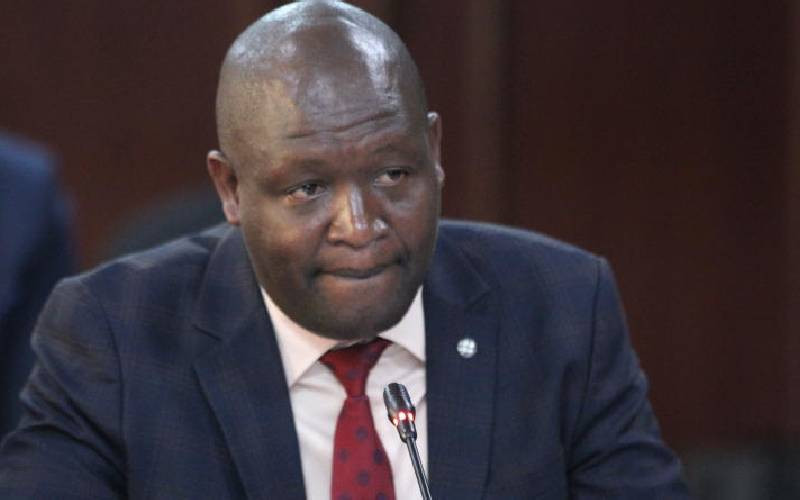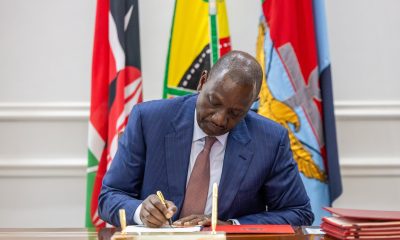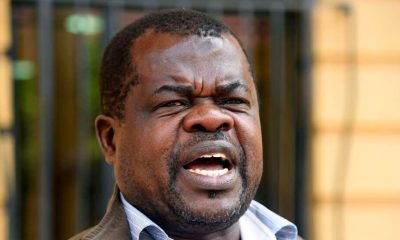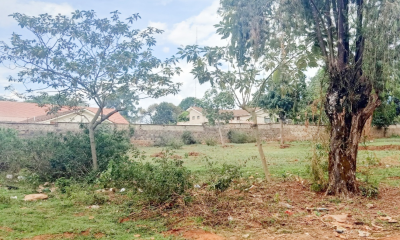Investigations
Oh Not Again! Kericho Governor Erick Mutai Caught Up in Another Sh80 Million Scandal
The most telling example occurred on March 10, 2025, when Sh6 million was withdrawn from a retention account and distributed among several companies.

Deputy Governor turns whistleblower as county faces fresh corruption allegations just months after surviving impeachment
Kericho County is once again thrust into the corruption spotlight, with Governor Erick Mutai facing explosive allegations of orchestrating fictitious payments worth Sh80 million.
This time, the bombshell comes from within his own administration, as Deputy Governor Fred Kirui has emerged as the chief whistleblower.
The scandal, which has sent shockwaves through the tea-rich county, involves alleged phantom payments to at least 28 companies for goods and services that were reportedly never delivered.
The revelation is particularly damaging for Mutai, who narrowly survived impeachment proceedings in October 2024, only to find himself embroiled in fresh corruption allegations barely three months later.
Questionable transactions
According to Kirui’s explosive revelations, the county disbursed millions between October 2024 and April 2025 for questionable procurements including catering services, office supplies, furniture, staff uniforms, computers, and vehicle maintenance.
The transactions appear carefully orchestrated to avoid detection, with most companies receiving amounts just below Sh3 million – a threshold that would trigger additional scrutiny.
The most telling example occurred on March 10, 2025, when Sh6 million was withdrawn from a retention account and distributed among several companies.
Five firms allegedly supplied agricultural products including soya, maize, sunflower, and cotton, each billing amounts suspiciously close to the Sh3 million threshold.
“There is no political malice here.
This is about protecting public funds and upholding transparency,” Kirui insisted, dismissing suggestions that his revelations are motivated by his well-documented clashes with Governor Mutai.
The Sh80 million at the center of this scandal represents more than just numbers on audit reports.
Critics have calculated that this sum could have funded full tuition for 355 students in national schools from Form One to Form Four, or constructed three kilometers of rural road infrastructure – resources desperately needed in a county where development has lagged despite its agricultural wealth.
One company alone was paid Sh3.55 million for general office supplies, while another received Sh1.85 million for tents, chairs, and a public address system.
These amounts raise serious questions about value for money and proper procurement procedures.
Governor under siege
This latest scandal comes at a particularly vulnerable time for Mutai, who has been battling corruption allegations throughout his tenure. In October 2024, he narrowly survived impeachment proceedings in the Senate, which terminated the process after finding that the minimum threshold of 32 MCAs was not met at the County Assembly level.
The impeachment motion had accused him of gross violation of the constitution, misappropriation of county finances, and abuse of office. While he survived that political storm, the current allegations present a more serious challenge as they come with potential criminal implications and involve anti-corruption agencies.
Mutai’s response to the current crisis has been characteristically measured. “I do not condone corruption. I’ve warned my officers publicly and privately—they will carry their own cross if found guilty,” he stated, while maintaining that he will allow the County Assembly to execute its oversight role.
Investigations continues
The Kericho County Assembly has moved swiftly to address the allegations, forming an ad hoc committee led by Londiani Ward MCA Vincent Korir to investigate the claims.
The committee has been given a tight deadline to conclude investigations and table its report by August 6, 2025.
“Those who will be found culpable will be dealt with, and we will ensure that all the departments are interrogated along with the Office of the Controller of Budget and the contractors who have been named in the petition,” Korir warned.
Deputy Speaker Cheruiyot Bett emphasized that accountability will extend from the highest office to junior officers if wrongdoing is established.
The Assembly’s commitment to fast-tracking the probe reflects the gravity of the allegations and public pressure for swift action.
Kirui has also escalated the matter beyond county level, writing to the Ethics and Anti-Corruption Commission (EACC), the Directorate of Criminal Investigations (DCI), and Senate Majority Leader Aaron Cheruiyot, demanding immediate action.
EACC’s track record in Kericho
The involvement of EACC is particularly significant given the commission’s history with Kericho County.
The anti-corruption agency has previously investigated various corruption allegations in the county, including recent raids on county offices in January 2025 over controversial tender awards.
However, residents and elected officials have expressed concern about the commission’s apparent reluctance to take concrete action despite multiple investigations.
This latest case presents EACC with an opportunity to demonstrate its effectiveness in tackling county-level corruption.
Senate Majority Leader Aaron Cheruiyot has thrown his weight behind calls for accountability, urging the County Assembly to fast-track investigations.
“I am calling on the County Assembly to fast-track the investigations into the claim of financial rip-off at the county executive and ensure those found to have been engaged in graft are held to account,” Cheruiyot stated.
The political implications extend beyond Kericho, as county governments nationwide face increased scrutiny over financial management.
This case could set important precedents for how corruption allegations are handled at the devolved level.
As investigations unfold, several key questions remain unanswered.
Will EACC finally take decisive action against county officials? Can Governor Mutai survive this latest scandal politically and legally? And will the County Assembly’s investigation lead to meaningful accountability or become another bureaucratic exercise?
The next few weeks will be crucial as the August 6 deadline for the assembly committee’s report approaches. For the residents of Kericho County, who have witnessed repeated corruption scandals, this represents yet another test of whether their leaders can be held accountable for the stewardship of public resources.
The scandal also highlights the critical role of whistleblowers in exposing corruption, even when they come from within the same administration. Deputy Governor Kirui’s decision to go public with these allegations, despite potential political costs, demonstrates the importance of institutional courage in the fight against corruption.
As this story continues to unfold, one thing remains clear: the people of Kericho County deserve better leadership and accountability from their elected officials. The Sh80 million scandal may be the latest chapter in the county’s troubled governance story, but it need not be the final one.
Kenya Insights allows guest blogging, if you want to be published on Kenya’s most authoritative and accurate blog, have an expose, news TIPS, story angles, human interest stories, drop us an email on [email protected] or via Telegram
-

 Grapevine6 days ago
Grapevine6 days agoAlleged Male Lover Claims His Life Is in Danger, Leaks Screenshots and Private Videos Linking SportPesa CEO Ronald Karauri
-

 Lifestyle1 week ago
Lifestyle1 week agoThe General’s Fall: From Barracks To Bankruptcy As Illness Ravages Karangi’s Memory And Empire
-

 Grapevine2 days ago
Grapevine2 days agoRussian Man’s Secret Sex Recordings Ignite Fury as Questions Mount Over Consent and Easy Pick-Ups in Nairobi
-

 Investigations2 weeks ago
Investigations2 weeks agoEpstein Files: Sultan bin Sulayem Bragged on His Closeness to President Uhuru Then His Firm DP World Controversially Won Port Construction in Kenya, Tanzania
-

 News2 weeks ago
News2 weeks agoAUDIT EXPOSES INEQUALITY IN STAREHE SCHOOLS: PARENTS BLED DRY AS FEES HIT Sh300,000 AGAINST Sh67,244 CAP
-

 Business2 weeks ago
Business2 weeks agoKRA Can Now Tax Unexplained Bank Deposits
-

 Investigations1 week ago
Investigations1 week agoEpstein’s Girlfriend Ghislaine Maxwell Frequently Visited Kenya As Files Reveal Local Secret Links With The Underage Sex Trafficking Ring
-

 News1 week ago
News1 week agoState Agency Exposes Five Top Names Linked To Poor Building Approvals In Nairobi, Recommends Dismissal After City Hall Probe



























